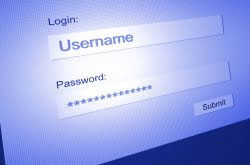

A recent LastPass survey [PDF] of over 1,000 U.S. consumers has found that fully 95 percent of respondents admit sharing up to six passwords with others.
Seventy-six percent share passwords with spouses or significant others, 26 percent do so with their children, and 22 percent share passwords with their coworkers.
And while 73 percent of respondents say sharing passwords is risky, the same percentage say they’re unlikely to reset their password after sharing it with someone.
The most frequently shared passwords are those for Wi-Fi (58 percent of respondents) and TV or movie streaming services (48 percent), but far more sensitive passwords are shared as well — 43 percent of respondents share their financial passwords, 39 percent share passwords for email and communication services, and 25 percent share work-related passwords.
In fact, 61 percent of respondents say they’re more likely to share work-related passwords than personal passwords.
Only 19 percent of respondents say they don’t share passwords that would jeopardize their identity or financial information.
The vast majority of respondents (74 percent) share passwords verbally, though 15 percent do so on pen and paper, 5.8 percent share passwords via text message, and 4.4 percent do so via email.
In general, the younger you are, the more likely you are to share passwords. Forty percent of respondents aged 18-29 trust friends with their passwords, 15 percent of those aged 30-44 do so, 6 percent of those aged 45-59 do so, and 8 percent of those aged 60+ do so.
The survey also found that 59 percent of respondents reuse passwords between websites, despite the fact that several recent breaches have been caused by password reuse.
A recent Ping Identity survey of more than 1,000 U.S. enterprise employees found that almost half of respondents reuse passwords for work-related accounts, and almost two-thirds do so for personal accounts. “No matter how good employees’ intentions are, this behavior poses a real security threat,” Ping Identity CEO Andre Durand said at the time.
Separately, SplashData’s annual list [PDF] of the 25 most common passwords found online was led by usual suspects “123456” and “password,” with new additions to the list including “welcome” and “login.”
“We hope that with more publicity about how risky it is to use weak passwords, more people will take steps to strengthen their passwords and, most importantly, use different passwords for different websites,” SplashData CEO Morgan Slain said in a statement.
[Source:- Esecurityplanet]

